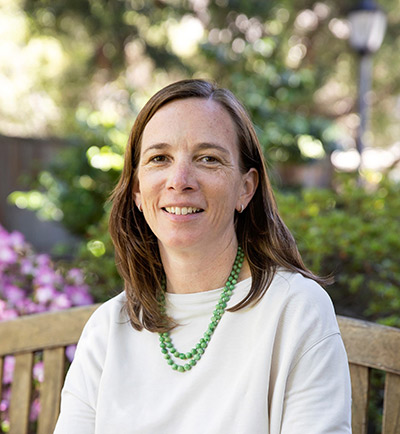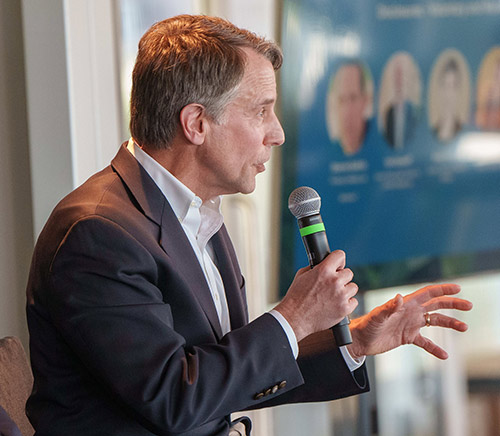Two dedicated decades: Center for Law, Energy & the Environment continues to expand its re
June 10, 2025

By Keemia Zhang
From its informal origins 20 years ago, when a website name change signaled the start of something bigger, the Center for Law, Energy & the Environment (CLEE) has grown into a powerhouse of environmental law and policy. Professor Daniel A. Farber, the center’s faculty director, marvels at its journey in becoming a leading voice in guiding policy solutions.
“I just did it, so there wasn’t anything really official about that,” Farber jokes of the website change. “Then, Dean (Christopher) Edley came forward with some funding to hire an executive director and kind of launch things in a more official way.”
Over its two decades, CLEE has experienced remarkable growth. From its modest beginnings, the center has expanded significantly, becoming the largest of UC Berkeley Law’s nearly 30 current research centers and institutes.

Also co-faculty director of the school’s Edley Center on Law & Democracy, Farber notes that CLEE’s staff has quadrupled in the last 10 years alone — with a particular surge in activity and impact since Executive Director Louise Bedsworth arrived in 2022.
“We’re getting a lot more grants and other sources of funding, mostly to work on specific projects relating to the state of California,” he says. “That work has snowballed, and we had to hire more people to sort of keep up with it.”
Broad reach, meaningful impact
The center focuses on four main areas — climate and energy, water, sustainable land use, and oceans — with research and activities addressing cutting-edge environmental and energy issues in each area. In April alone, CLEE reports addressed low-cost innovation in residential electric vehicle (EV) charging, cost-effective and sustainable fire recovery in Los Angeles, state and local financing to advance groundwater management, harnessing satellite data to reduce methane emissions, and a first-of-its-kind insurance policy that takes into account nature-based efforts to mitigate fire risk.
Farber says some of CLEE’s key achievements include partnering with local governments on equitable EV infrastructure, helping to modernize water rights into California law, establishing the California-China Climate Institute, and having Climate Risk Initiative Director Dave Jones draft legislation on corporate climate risk disclosures.
Beginning with highly respected environmental lawyer Rick Frank, Farber says the center has benefited from directors who raised CLEE’s capacity, reputation, and impact: “We’ve just been very lucky to have a terrific series of people.”
At the program director level, Farber points out, many began as research fellows — including Climate Program Director Ethan Elkind and CLEE Associate Director Ted Lamm.
“Our research fellows have developed their own niches in the policy world,” Farber says. “It’s really turned out to be a place where people can sink roots and flourish.”
Keying in on California
While ideally CLEE would help solve the planet’s climate crisis in the next 20 years, Farber’s more realistic goal is to help California achieve its 2030 and 2045 carbon emission reduction and net-zero economy targets.

“The goals are necessary but they’re not going to be at all easy to achieve,” he says. “I’d like us to operate as California’s climate think tank, helping the state get to where it needs to be and provide an example to other U.S states and other countries.”
While federal policy plays a vital role, Farber points out that advancements in solar, wind, electric vehicles, and clean energy are often driven by state and local governments — with California regularly leading the way — as well as private companies.
“Those things go on regardless of who’s president,” he says. “It shouldn’t just be assumed that everything comes slamming to a halt.”
Committed to developing the next generation of top environmental lawyers, CLEE also funds law student environmental programs — most notably Ecology Law Quarterly, established in 1971 and one of the oldest and most prestigious journals publishing environmental law scholarship. Students are also hired as research assistants for CLEE projects, gaining valuable real-world policy experience.
With a legacy of impactful work and a commitment to training future environmental law leaders, Farber says CLEE stands poised to continue its vital role as California’s climate think tank for decades to come.
This article was made possible by support from the Erin Ziegler Fund, an endowment for the Center for Law, Energy & the Environment within UC Berkeley Law.
Search
RECENT PRESS RELEASES
Related Post



